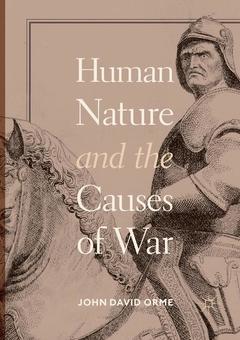Description
Human Nature and the Causes of War, Softcover reprint of the original 1st ed. 2018
Author: Orme John David
Language: English
Subject for Human Nature and the Causes of War:
Keywords
Classical Realism; Revisionism; Power; Honor; Glory; Regime; Tyranny; Authoritarianism; Republics
Approximative price 116.04 €
In Print (Delivery period: 15 days).
Add to cartPublication date: 12-2018
Support: Print on demand
Approximative price 158.24 €
In Print (Delivery period: 15 days).
Add to cartPublication date: 04-2018
Support: Print on demand
Description
/li>Contents
/li>Biography
/li>Comment
/li>
Sets forth classical realism as a theory of world politics
Finds that revisionism (the desire to alter the territorial status quo) accounts for much more warfare than “spirals of insecurity” between status quo powers
Examines the effects of political regimes (especially authoritarian ones) on foreign policy




